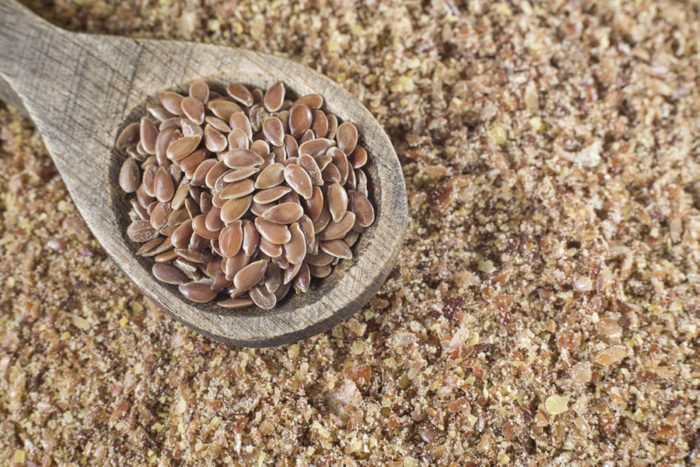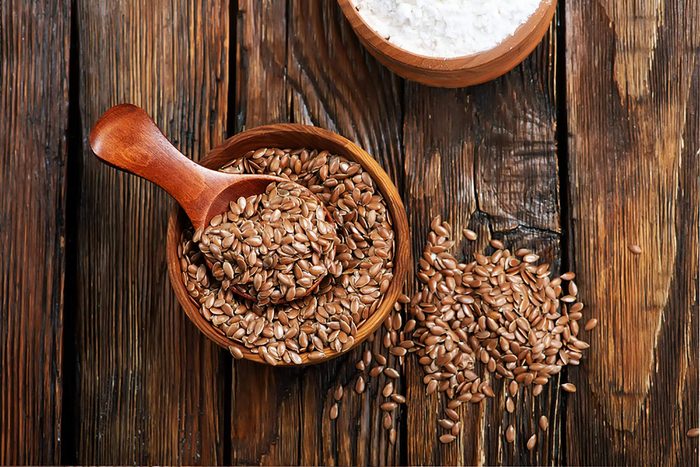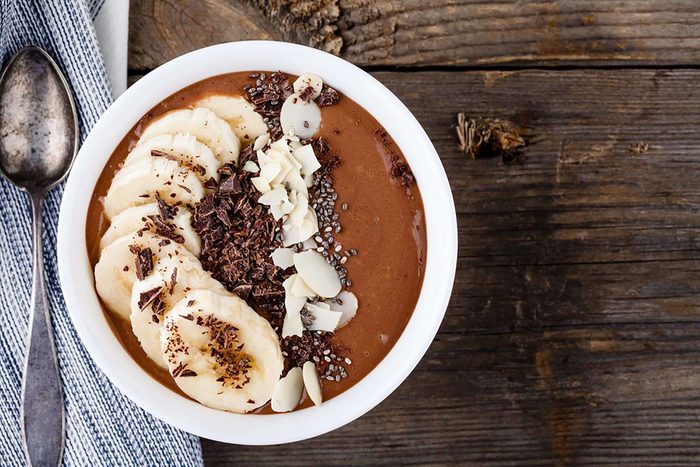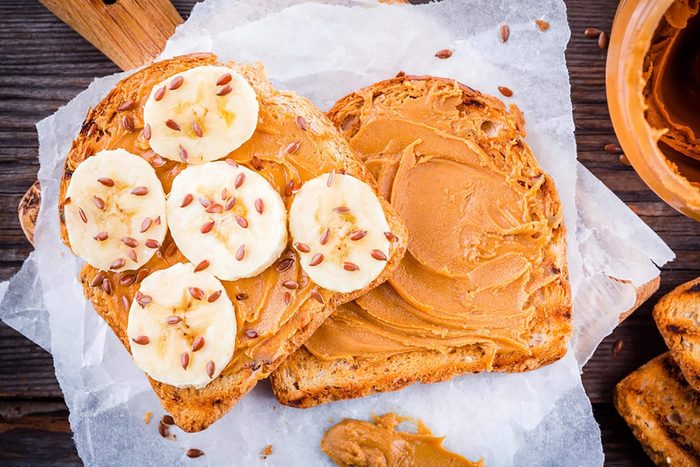
Why you should eat flaxseeds
As vegetation goes, the flax plant is pretty useful. People extract its fiber and use it to make many things, like bed linens and paper money. But there’s more—the plant’s tiny seeds are packed with healthy nutrients too. In fact, flaxseeds are one of the healthiest high-fat foods you should be eating.
You can add flaxseeds to everything from salads to smoothies. While you can eat them whole, most people recommend grinding them up—otherwise they might pass through you undigested and you will miss out on the nutrients. (If you buy them whole, you can grind them up in a coffee grinder before consuming them.) Here are some of the top reasons to eat more flaxseeds and how to incorporate them into your diet.

Flaxseeds contain omega-3 fatty acids
Flaxseeds are rich in omega-3 fatty acids, a polyunsaturated fatty acid that can help fight inflammation and keep cholesterol levels in check. “Research has also shown that omega-3s can help boost your mood and help improve mood disorders like depression,” says registered dietitian Brigitte Zeitlin. “Use flaxseed oil as the basis for your salad dressings, and reap these mood-elevating benefits.”

Flaxseeds are a good source of plant protein
“Flaxseeds are a good source of plant-based protein,” says Zeitlin. “Protein will keep your muscles and bones strong, while helping to boost your cognitive function to keep you feeling alert and focused. Use them in your smoothies or sprinkle onto of your sautéed vegetables to boost you protein intake.”

Flaxseeds contain soluble fiber
In addition to protein, flaxseeds are a good source of fiber, which can promote better intestinal health. “Soluble fiber can help to lower LDL (the unhealthy) cholesterol levels in the blood,” says registered dietitian Daniela Novotny. “It can also decrease how quickly foods are absorbed, which helps with satiety as well as blood sugar control.” (Here’s how flaxseeds compare to chia seeds in nutritional benefits.)

Flaxseeds contain insoluble fiber
Not only does flax contain soluble fiber, but it is also full of insoluble fiber as well, which serves a slightly different purpose. “Insoluble fiber helps to add bulk to stool, which helps the contents of the gastrointestinal system move through efficiently,” says Novotny. “As a result, insoluble fiber has been helpful for individuals suffering with constipation.”

Flaxseeds are high in antioxidants
“Flaxseeds are high in lignans, a type of antioxidants that can help fight off chronic illnesses,” says Zeitlin. “It can also help fight premature signs of aging like wrinkles and lines on your skin. Sprinkle ground seeds in your morning oatmeal or Greek yogurt parfait to get a dose of these antioxidants at the start of your day.”

Flaxseeds may lower your cancer risk
“Some research has suggested that flax can help protect against breast and prostate cancers,” says Novotny. This is thanks to its lignan content, which acts as phytoestrogens and antioxidants to help protect against these cancers. “Food sources with lignans are rare, and flaxseeds are one of the best sources,” says Novotny. “The omega-3 fatty acids have also been found to help lower the risk of cancers.” (You’ll also want to add these 30 cancer-fighting foods to your diet.)

Flaxseeds may lower your risk of heart disease
Incorporating flaxseed benefits your heart health. “The omega-3 fatty acids can help lower blood pressure, as well as improve cholesterol levels,” says Novotny. “Both can help fight against heart disease.” You don’t have to only eat whole flaxseeds for these benefits either. Flax milk is another great way of getting its nutrients.

Flaxseeds may reduce inflammation
Because these seeds are a good source of omega-3 fatty acids, they can help to reduce inflammation in the body. “Inflammation can lead to heart disease, obesity, and chronic illnesses,” says Zeitlin. “Add ground flaxseeds to your morning eggs or sprinkle them on top of your breakfast toasts.”

Flaxseeds promote a healthy weight
With all that fiber, this superfood can help fill you up at meals and keep you full for longer periods of time. “When you are feeling full and satisfied, you are more likely to avoid cravings and not overeat, keeping that waistline healthy,” says Zeitlin. She suggests tossing some flaxseeds on soups, stews, and stir-fries as a topping. You can also combine them with other foods that help you lose weight.

Flaxseeds improve your gut health
Once again, you can thank flaxseed’s fiber content for the potential for a healthier gut. “All that fiber found will help promote good gut motility and regularity, which will fight constipation and bloat, while also helping to decrease your risk of colon cancer,” says Zeitlin. Next, follow these food rules for better gut health.
